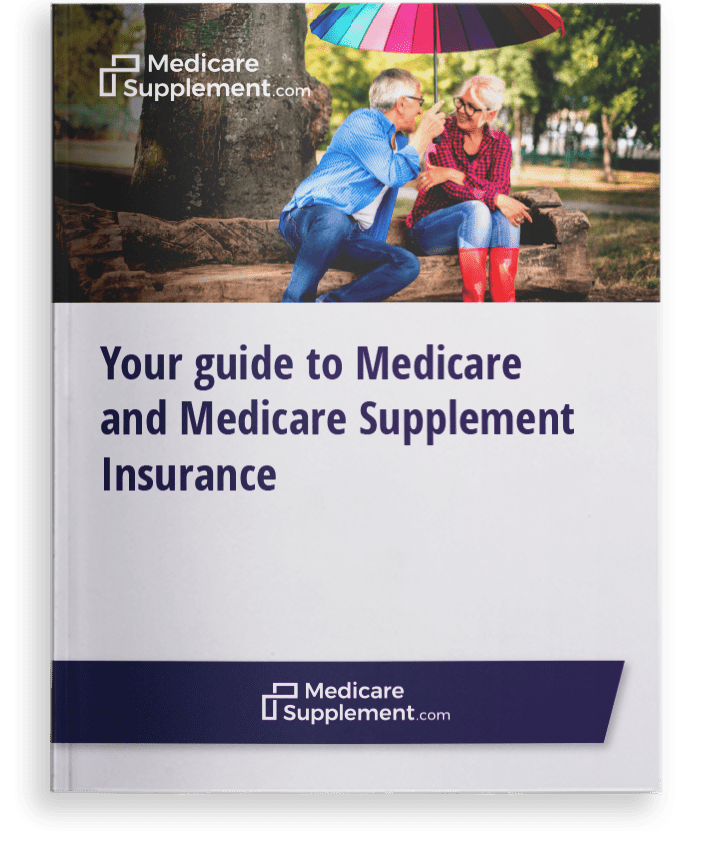Medicare 101
10 Medicare Mistakes You Could Be Making
As complex as Medicare can be, it's no surprise that there are some mistakes beneficiaries commonly make. Learn how to avoid these 10 common mistakes.
Enrolling in Medicare and managing your health care coverage can be a challenging, time-consuming task — and there's plenty of room for error.
To help you sort out some of the basics, here's a list of 10 common Medicare mistakes and tips for how you can avoid them.
Mistake #1: You don’t understand your coverage options
One mistake that beneficiaries commonly make with Medicare is picking a coverage option that may not be the right fit for their unique needs.
As a Medicare beneficiary, you have choices for how you receive Medicare benefits — choices that can meet a wide variety of health care needs and budgets.
Most beneficiaries have the option of choosing one of two paths:
-
Original Medicare, administered by the government, includes Medicare Part A (hospital insurance) and Medicare Part B (medical insurance).
If you have Original Medicare and meet eligibility requirements, you can purchase a Medicare Supplement Insurance plan (Medigap) to help pay for some out-of-pocket costs associated with Original Medicare, such as deductibles, copayments, coinsurance and other fees.
You can also buy a Part D Prescription Drug Plan to help pay for medications. -
Medicare Advantage, sometimes referred to as “Medicare Part C,” offers Part A and Part B benefits through private insurance companies that contract with Medicare.
Many Medicare Advantage plans also include additional benefits, like prescription drug coverage, dental coverage and vision coverage.
Explore the basics of Medicare benefits
Mistake #2: You assume you’ll be automatically enrolled in Medicare when you turn 65
Some people get Medicare Part A and Part B automatically at age 65, but some may have to sign up manually.
You’ll only be enrolled in Medicare Part A and Part B automatically if:
-
You’re already receiving Social Security benefits or Railroad Retirement Board (RRB) benefits as you turn 65
-
You're younger than 65 and have been receiving disability benefits from either Social Security or the Railroad Retirement Board for at least 24 months
-
You have Amyotrophic Lateral Sclerosis (ALS/Lou Gehrig’s disease)
So unless you receive your red, white and blue Medicare card in the mail three months before your 65th birthday (or before your 25th month of disability), you should plan to manually enroll in Medicare through the Social Security Administration.
Learn more about Medicare eligibility and enrollment
Mistake #3: You wait too long to enroll
Knowing when to sign up for Medicare is particularly important.
Why? When is the wrong time to enroll in Medicare?
If you fail to enroll at the right time, you could end up paying lifetime penalties for your Medicare Part B coverage.
-
Failing to enroll in Medicare Part B when you are first eligible could mean that your premium will go up 10% for each 12-month period you could have been covered but weren’t enrolled.
If you meet certain conditions that allow you to sign up for Part B during a Special Enrollment Period, you won’t have to pay a late enrollment fee.
If you are manually signing up for Original Medicare, there is a 7-month Initial Enrollment Period (IEP) during which you should enroll. It begins three months before your 65th birthday, includes your birthday month and ends three months after.
If you work past the age of 65 and have health coverage from your employer, make sure you will qualify for a Special Enrollment Period (SEP) when you leave your employer-provided health insurance and wish to enroll in Medicare.
If you or your spouse have workplace health insurance that is considered "creditable coverage", you may be able to delay your Part B enrollment without penalty until your job ends. Otherwise, you should consider enrolling during your IEP to avoid the Part B penalty.
If you miss your Initial Enrollment Period and don't qualify for a Special Enrollment Period, you can sign up during the annual General Enrollment Period (Jan. 1- March 31). But if you do, your coverage won't begin until July 1 and you could face late enrollment penalties.
Learn more about Medicare Special Enrollment Periods

Mistake #4: You don't enroll in Part B because you have retiree coverage
If you have COBRA coverage or if your benefits are based on retirement pay from a job that ended more than eight months ago, you should enroll in Medicare Part B during your IEP.
These types of employer-related coverage aren’t considered primary coverage after you turn 65. This means that they don’t meet the mandatory health coverage requirements to qualify for a Medicare Special Enrollment Period.
To avoid gaps in your health insurance coverage and the lifetime Part B late enrollment penalty, make sure you enroll on time.
Mistake #5: You assume Original Medicare will cover your prescription drugs
Original Medicare offers only limited prescription drug coverage.
If you want comprehensive prescription drug coverage, one option you have is to purchase a standalone Part D Prescription Drug Plan from a private insurance company. Used alongside Original Medicare, Part D helps pay for the cost of your medications.
You can compare Part D plans available where you live and enroll in a Medicare prescription drug plan online when you visit MyRxPlans.com.
Enroll in Medicare Part D at MyRxPlans.com.
Vist MyRxPlans.comMistake #6: You don't account for out-of-pocket costs in your health care budget
While there are many services included in Original Medicare coverage, not every health care cost is covered.
Make sure you account for your share of out-of-pocket health insurance costs, including premiums, coinsurance, copayments, deductibles and services not covered by Medicare.
Another common mistake people make is assuming that Original Medicare covers other health services like dental, vision, hearing needs or long-term care, which is not the case.
Learn more about your Medicare out-of-pocket costs
Mistake #7: You're confusing Medicare Advantage and Medigap
Medicare Advantage plans and Medicare Supplement Insurance are two very different options for Medicare beneficiaries.
-
Medicare Supplement Insurance provides coverage for some of the out-of-pocket costs left by Original Medicare that are mentioned above, such as deductibles, copayments and coinsurance.
There are 10 standardized Medigap plans available in most states, so you can most likely find a plan that fits well with your unique health care needs. You are likely eligible for a Medigap plan if you are at least age 65 and are enrolled in Medicare Part B. -
Medicare Advantage can be purchased as an alternative to Original Medicare.
These private health plans include all of the same benefits as Part A and Part B and may include additional benefits (such as vision, hearing, dental services and prescription drug coverage).
Medicare Advantage plans have their own out-of-pocket costs (deductibles, copayments and coinsurance).
You cannot use a Medigap plan with a Medicare Advantage plan.
Learn more about the differences between Medicare Advantage and Medigap

Mistake #8: You assume you can get a Medigap plan that covers both you and your spouse
Spouses cannot share the same individual Medigap plan and must each have separate policies.
However, you might be able to qualify for a small discount if you and your spouse buy your Medigap policy from the same company. This will vary depending on the insurance provider, and insurance companies are not legally required to offer a spousal discount.
Be sure to ask your plan provider about possible discounts when you enroll.
Learn more about getting individual Medigap coverage
Mistake #9: You don't check to see if you qualify for help to lower your Medicare costs
Medicare and its many expenses (copays, deductibles, premiums, prescription drug costs, etc.) can be difficult for many people to pay.
Some of the financial assistance programs available to people with limited incomes and financial resources include:
-
-
Extra Help is a program that helps Medicare beneficiaries pay for their Part D prescription drug coverage.
-
Medicare Savings Programs in your state may help you pay your Medicare Part A and/or Part B premiums.
-
Medicaid is a federal program that helps millions of Americans pay for their medical care costs.
-
PACE helps provide coordinated care in the community for seniors
-
Learn more about Medicare cost assistance programs
Mistake #10: You’re not taking advantage of Medigap Open Enrollment
The best time to enroll in a Medicare Supplement Insurance plan is during your Medigap Open Enrollment Period.
During your Medigap Open Enrollment Period, you have certain purchase protections that include:
-
Medigap insurance companies can't deny you coverage or charge you more for a Medigap plan because of your health
-
You can switch your Medigap plan at any point during your Medigap OEP.
-
There's no wait for coverage to begin (unless you have a pre-existing condition)
Your Medigap OEP starts as soon as you are at least age 65 and are enrolled in Medicare Part B. If you don't enroll in Medicare Part B as soon as you reach age 65, your Medigap OEP starts the month that you enroll in Part B.
Your Medigap OEP only lasts for six months from the time that you are initially eligible.
Learn more about Medigap Open Enrollment
Learn more about common procedures that medicare covers.
To find a policy that fits your health insurance coverage needs, call today to speak with a licensed insurance agent.
Find Medigap plans in your area.
Compare Plans
Get a Free Medicare Guide!
Enter your email address and get a free guide to Medicare and Medicare Supplement Insurance, as well as important Medicare news and tips. We promise to never send you spam – just helpful content!
By clicking "Get your guide" you are agreeing to receive emails from MedicareSupplement.com.


